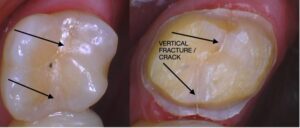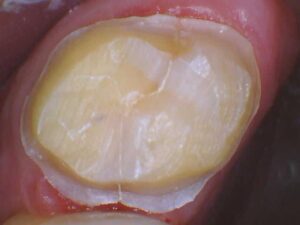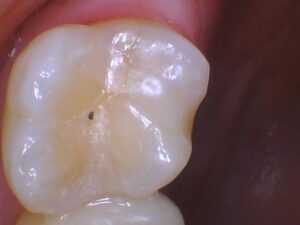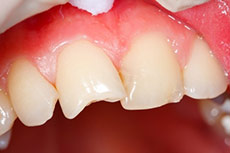 When it comes to taking care of our teeth, we generally hear the same kind of advice all of the time: brush and floss everyday and don’t eat too much candy. While this advice is extremely important, there are a lot of additional ways to keep your teeth healthy as well. We asked our dentists at Water Tower Dental Care to share some tips for taking care of your teeth that you probably haven’t heard before. Here are 6 unusual teeth tips straight from our dentists.
When it comes to taking care of our teeth, we generally hear the same kind of advice all of the time: brush and floss everyday and don’t eat too much candy. While this advice is extremely important, there are a lot of additional ways to keep your teeth healthy as well. We asked our dentists at Water Tower Dental Care to share some tips for taking care of your teeth that you probably haven’t heard before. Here are 6 unusual teeth tips straight from our dentists.
-
Eat Cheese (In Moderation)
Believe it or not, cheese is good for your teeth! Like the peroxide-based teeth-whitening solutions we described earlier, cheese helps to neutralize acids in your mouth, increasing your pH levels for about 30 minutes, according to the Academy of General Dentistry. This means less bacteria breeding in your mouth and less teeth erosion. Cheese also causes salivation, which helps get rid harmful bacteria and food particles. Finally, cheese contains casein phosphate, which keeps your teeth strong. Unfortunately, this doesn’t mean you should eat all of the cheese that you possibly can. You only need about ⅓ of a slice to get these oral benefits.
-
Whiten Your Teeth For Health & Cosmetic Reasons
While teeth whitening can make your teeth look better than ever, its benefits aren’t purely cosmetic. Teeth whitening can also help keep your teeth healthy by removing plaque and preventing tooth decay. Recent research has found that teeth whitening products that contain a peroxide-based solution can effectively get rid of plaque, reduce caries bacteria, and increase the pH level of your mouth, according to Professor Van B. Haywood.
When the pH level in your mouth becomes too low, this means that it is highly acidic. If your pH level is highly acidic, bacteria will begin to breed and your enamel will break down. Peroxide-based teeth-whitening solutions will neutralize your pH levels to a healthy 7 or 8, reducing the acidity in your mouth. This is especially helpful after you eat or drink highly acidic food, such as coffee, wine and citrus fruits. Ask us about our at-home teeth whitening kits to help your teeth look and feel healthier today!
-
Keep Your Mouth Healthy With Coconut Oil
Coconut oil has a ton of health benefits, from decreasing cholesterol levels to helping diabetes. It turns out that coconut oil is great for your oral health too. Through a method called oil pulling, coconut oil can actually help pull bacteria off of your teeth for a healthier and cleaner smile. All you have to do is swish around a teaspoon of coconut oil in your mouth for about 20 minutes. Of course, you should still keep up with your regular routine of brushing, flossing and using mouthwash.
If you’re questioning the validity of this claim, good for you. You shouldn’t believe everything you read on the Internet, especially when it comes to oral health. Thankfully, there are various studies, including the following three, that have proved that oil pulling effectively fights off bacteria: Study 1, Study 2, Study 3. You can read more about oil pulling for your teeth here.
-
Use Oral Probiotics For Your Mouth
In the past, probiotics were thought to only help digestive and immune health. But recently, probiotics designed specifically for oral health have been found to naturally support gum and tooth health, make your breath fresh and whiten your teeth. Effective probiotics trigger the production of healthy bacteria that work to keep your mouth and gums healthy. They also reduce the nutrients for bacteria that cause bad breath, and produce low doses of hydrogen peroxide to gently whiten your teeth. Learn more about oral probiotics from Evora.
-
Don’t Use Your Teeth As Tools
While it may be more convenient to open that bag of chips with your teeth rather than finding scissors, using your teeth as tools can have serious (and expensive) consequences. Many of our patients have come in with broken, cracked or chipped teeth because they tried using their teeth to cut or open something. Your teeth are meant for chewing food in your mouth - Not for anything else. It’s not worth the pain or the price to fix your teeth.
-
You Can Use A Reversal Agent for Mouth Numbing
Some patients avoid important dental procedures because of the irritating and sometimes damaging numbing sensation that they experience hours afterwards. While it’s great to be numb in the dentist’s chair, it’s not so great when you’re hungry a couple hours afterwards. At worst, some patients chew their lip and gums because they can’t feel what their teeth are doing. Many patients may drool and not be able to talk properly, smile, or eat and drink because their mouths are numb. Thankfully, at Water Tower Dental Care, we offer reversal agents for teeth numbing, so that you can return to feeling your mouth much faster, and avoid the painful and embarrassing after effects.
We hope these unusual tips from our dentists, along with your normal health routine, help you to make your teeth even healthier. If you would like any more tips, reach out to us on our Facebook page. We’re full of helpful and creative ways to keep your teeth looking and feeling as good as new!





 The food and drink you put into your mouth can make all of the difference when it comes to your dental health. When some people drink water, soda, or other drinks with ice, they may experience tooth pain. Does this mean ice is bad for your teeth? Let’s take a look now.
The food and drink you put into your mouth can make all of the difference when it comes to your dental health. When some people drink water, soda, or other drinks with ice, they may experience tooth pain. Does this mean ice is bad for your teeth? Let’s take a look now. You can’t always put off seeing the dentist. If you have a simple cavity, it’s easy to wait to see the dentist for a couple of days. A painful cracked tooth is another story. We’re here to help you figure out what you should do if you have a dental emergency in Chicago. The more prepared you are, the quicker you’ll be able to deal with any serious dental issues.
You can’t always put off seeing the dentist. If you have a simple cavity, it’s easy to wait to see the dentist for a couple of days. A painful cracked tooth is another story. We’re here to help you figure out what you should do if you have a dental emergency in Chicago. The more prepared you are, the quicker you’ll be able to deal with any serious dental issues. Everyone in Chicago knows that the city’s winter weather can be hard on your commute, skin and nose. But extremely cold weather can also affect your teeth and mouth. Many Chicagoans experience uncomfortable sensations or even extreme pain in their mouth while in icy weather. Let’s take a look at why that happens and what you can do to keep your teeth and mouth feeling great all winter long!
Everyone in Chicago knows that the city’s winter weather can be hard on your commute, skin and nose. But extremely cold weather can also affect your teeth and mouth. Many Chicagoans experience uncomfortable sensations or even extreme pain in their mouth while in icy weather. Let’s take a look at why that happens and what you can do to keep your teeth and mouth feeling great all winter long! When it comes to taking care of our teeth, we generally hear the same kind of advice all of the time: brush and floss everyday and don’t eat too much candy. While this advice is extremely important, there are a lot of additional ways to keep your teeth healthy as well. We asked our dentists at Water Tower Dental Care to share some tips for taking care of your teeth that you probably haven’t heard before. Here are 6 unusual teeth tips straight from our dentists.
When it comes to taking care of our teeth, we generally hear the same kind of advice all of the time: brush and floss everyday and don’t eat too much candy. While this advice is extremely important, there are a lot of additional ways to keep your teeth healthy as well. We asked our dentists at Water Tower Dental Care to share some tips for taking care of your teeth that you probably haven’t heard before. Here are 6 unusual teeth tips straight from our dentists. A smile says a lot about you. A sparkling and straight grin will tell people that you take the time to take care of yourself and your teeth, and can give you a serious confidence boost. Unfortunately, not all of us have the teeth we wish we had. Genetics and accidents can leave us with chipped, stained or crooked teeth that we’re unhappy with. But there’s a solution. Dental veneers can cover up your dental imperfections in a quick and efficient way for years to come.
A smile says a lot about you. A sparkling and straight grin will tell people that you take the time to take care of yourself and your teeth, and can give you a serious confidence boost. Unfortunately, not all of us have the teeth we wish we had. Genetics and accidents can leave us with chipped, stained or crooked teeth that we’re unhappy with. But there’s a solution. Dental veneers can cover up your dental imperfections in a quick and efficient way for years to come.

 Just as you might expect, as the rest of your body ages, your teeth age as well. So what exactly happens to your teeth as they get older and what can you do now to help them out?
Just as you might expect, as the rest of your body ages, your teeth age as well. So what exactly happens to your teeth as they get older and what can you do now to help them out? Repairing a chipped tooth is usually not as hard as one would imagine. Through several different processes, depending on the severity of the chipped tooth, a dentist can make your smile look good as new.
Repairing a chipped tooth is usually not as hard as one would imagine. Through several different processes, depending on the severity of the chipped tooth, a dentist can make your smile look good as new. When the word cosmetic is used, most people immediately think of vanity, and changing your appearance for aesthetic reasons, rather than functional ones. However, when it comes to cosmetic veneers, there are many helpful reasons why one would want them, other than cosmetic reasons. Here’s how cosmetic veneers can do more than give you a better-looking smile.
When the word cosmetic is used, most people immediately think of vanity, and changing your appearance for aesthetic reasons, rather than functional ones. However, when it comes to cosmetic veneers, there are many helpful reasons why one would want them, other than cosmetic reasons. Here’s how cosmetic veneers can do more than give you a better-looking smile.
 Last week we listed the solutions for fixing a chipped tooth. Today we'd like to get a little more in depth on some of the harmful foods and activities that can crack, chip, or fracture a tooth.
Last week we listed the solutions for fixing a chipped tooth. Today we'd like to get a little more in depth on some of the harmful foods and activities that can crack, chip, or fracture a tooth. Whether you took a bite into something too hard for your tooth, or took a nasty spill, the potential to crack, fracture or chip your tooth is possible. Thankfully, there are several ways to fix a chipped tooth depending on the severity of the accident.
Whether you took a bite into something too hard for your tooth, or took a nasty spill, the potential to crack, fracture or chip your tooth is possible. Thankfully, there are several ways to fix a chipped tooth depending on the severity of the accident.




 Website Powered by Sesame 24-7™
Website Powered by Sesame 24-7™